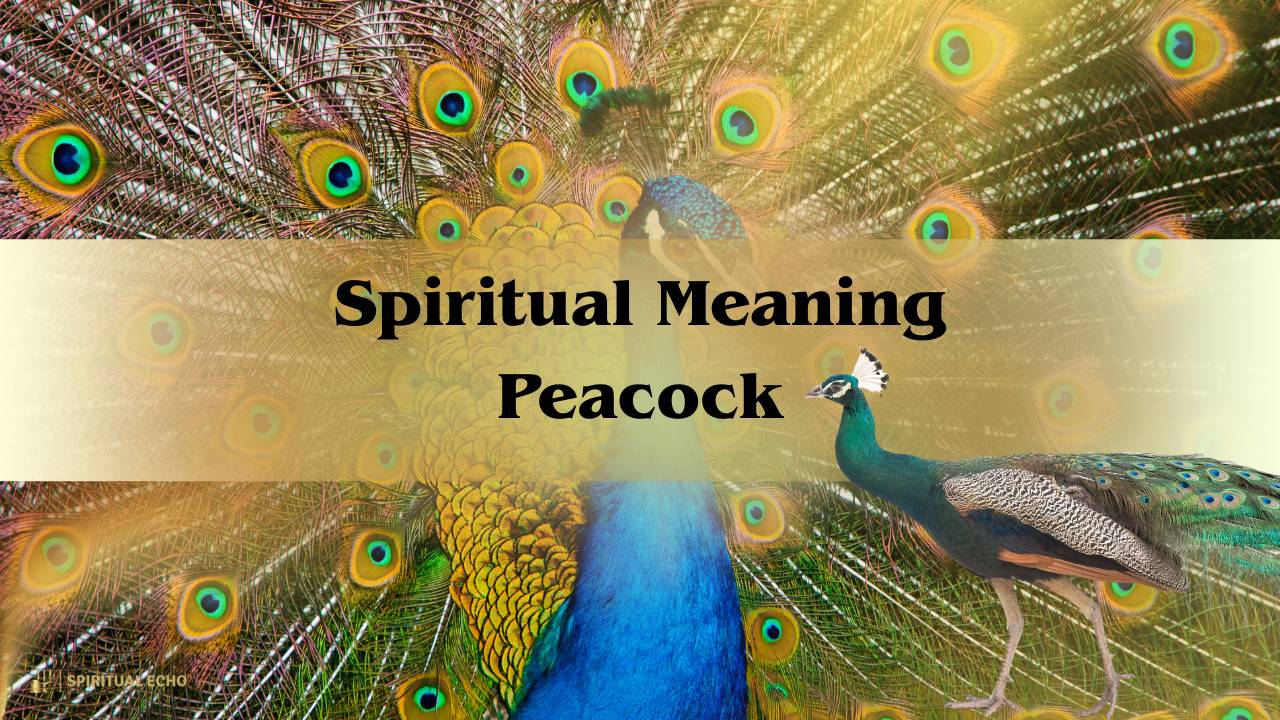Have you ever thought about what happens when you stop eating meat spirituality? Giving up meat not only has many physical health benefits but also has spiritual advantages. When individuals choose to eliminate meat from their diet, they may undergo a spiritual transformation.
This decision reflects a compassionate and careful way of living. By doing so, one can foster a deeper bond with nature and all living creatures, enhancing their empathy and sense of interconnectedness.
Numerous spiritual practices and beliefs promote vegetarianism or veganism, highlighting the significance of non-violence and reverence for every life.
Embracing a diet devoid of meat can set individuals on a path of self-exploration, inner tranquility, and spiritual development. It enables them to honor the intrinsic sanctity of life forms and make choices that align with their spiritual principles.
What happens when you stop eating meat spirituality? When you stop eating meat, spirituality can involve a range of experiences. It may promote a deeper connection with nature, increased empathy, a sense of ethical alignment, and heightened awareness of the interconnectedness of all beings, leading to a more compassionate and mindful way of living.
- What Happens When You Stop Eating Meat Spirituality?
- What Happens When You Stop Eating Meat 🥩
- What Is A Spiritual Diet That Increases Energy Levels
- When You Stop Eating Meat
- How Giving Up Meat Can Increase Spiritual Mindfulness And Compassion
- What does Stopping Eating Meat do to Your Body?
- The Spiritual And Ethical Reasons For Giving Up Meat
- Tips For Transitioning To A Vegetarian Or Vegan Diet For Spiritual Reasons
- Tips for Transitioning to a Vegetarian or Vegan Diet for Spiritual Reasons
- Addressing Common Concerns About Giving Up Meat, Including Social Situations And Cultural Traditions
- FAQ: What Happens When You Stop Eating Meat Spirituality
- Conclusion and final thoughts 💭
Spiritual
Diet —
What Happens When You Stop Eating Meat Spirituality?
When you stop eating meat from a spiritual perspective, it can lead to increased awareness and connection to the environment, animals, and one’s own body. It may foster a sense of compassion, mindfulness, and harmony with nature, aligning with spiritual beliefs centered on non-violence, respect for all life, and the pursuit of a more ethical and sustainable lifestyle.
What Happens When You Stop Eating Meat 🥩
What happens when you stop eating meat spirituality? When you choose not to eat meat, it can transform your body and also have a deep impact on your spiritual well-being. Many people feel a stronger connection to nature and become more empathetic toward all living beings when they stop consuming animal products.
This change in awareness helps them understand how everything in life is interconnected, promoting unity and harmony. By aligning with their personal values and beliefs, individuals often experience inner peace and spiritual growth. Giving up meat can lead to enlightenment and a profound spiritual awakening
What Is A Spiritual Diet That Increases Energy Levels
A spiritual diet pertains to a manner of eating that nurtures both the physical body and the soul. It revolves around making deliberate and mindful decisions concerning the food we consume, taking into account its energetic and spiritual implications.
A spiritual diet frequently highlights the significance of whole, unprocessed, and plant-derived foods, promoting robust mental and physical health clarity and increasing energy level. It acknowledges the interdependence of all living beings and advocates for mindful eating habits, gratitude, and reverence for the environment.
When individuals embrace a spiritual diet, their aim is to harmonize their food choices with their spiritual convictions, fostering a profound connection with themselves, others, and the surrounding world.
Eating Meat And Spirituality
The correlation between consuming meat and spirituality is a matter of deep reflection. Certain individuals maintain that the act of eating meat carries spiritual consequences due to the taking of a life and the perpetuation of harm to animals. Conversely, others contend that meat consumption aligns with the natural aspects of human existence and does not inherently contradict spiritual convictions.
Ultimately, the association between eating meat and spirituality fluctuates, shaped by individual beliefs, cultural practices, and diverse understandings of compassion and respect toward all living creatures.

When You Stop Eating Meat
When an individual or meat-eater makes the decision to eliminate meat from their diet, numerous transformations can take place. The human body may undergo positive changes, including enhanced digestion, weight management, and a decreased likelihood of certain illnesses. Moreover, this choice contributes to environmental sustainability by diminishing one’s carbon footprint and promoting the well-being of animals.
On the other hand, if you have dried roses, they can be hung upside down immediately after they have been properly dried-out. It is important to consider the energy and symbolism you wish to cultivate during this process.
At What Age Should You Stop Eating Red Meat?
The appropriate age to stop consuming red meat differs for each person, taking into account their specific circumstances and health factors. It is recommended to seek guidance from a healthcare expert to assess any dietary limitations or adjustments that may be necessary.
Personal health conditions, nutritional requirements, and lifestyle choices should be carefully considered when determining the appropriate time to reduce or exclude red meat from one’s diet.

How Giving Up Meat Can Increase Spiritual Mindfulness And Compassion
When individuals choose to eliminate meat from their diet, it has the potential to enhance their spiritual mindfulness and compassion. By abstaining from animal products, individuals embrace values centered around non-violence, empathy, and interconnectedness with all living beings.
This deliberate decision cultivates a deeper awareness of how our actions impact others and the environment, fostering a more compassionate outlook on life and promoting unity and respect for all creatures. Through the practice of foregoing meat, individuals can develop mindfulness, broaden their capacity for empathy, and nurture a stronger sense of spiritual connectedness.
Foods To Eat During Spiritual Awakening
When experiencing a spiritual awakening, it is advantageous to consume foods that provide nourishment for both the physical body and the soul. Prioritize whole, unprocessed foods like fruits, vegetables, nuts, seeds, and grains.
Introducing plant-based alternatives herbs, herbal teas, and natural spices can enhance clarity, and energy levels, and foster a deeper spiritual connection. It is crucial to listen to your body’s needs and select foods that align with your unique path of spiritual consciousness.
Foods To Avoid During Spiritual Awakening
During a spiritual awakening, it is advisable to avoid certain foods that may hinder your progress. Limit or avoid processed foods, refined sugars, caffeine, and alcohol as they can disrupt your energy and clarity. Additionally, reducing or eliminating meat and animal products may be beneficial as they can be heavy and dense, affecting your spiritual vibration.
By avoiding these foods, you can create space for higher vibrational foods that support your spiritual journey.
What does Stopping Eating Meat do to Your Body?
Discontinuing the consumption of meat can bring about numerous changes in the body. By eliminating meat, cholesterol levels can decrease, thereby lowering the risk of cardiovascular diseases associated with saturated fats. A plant-based diet, known for its high fiber content, can facilitate weight loss and enhance digestion.
Furthermore, the abundance of vitamins, minerals, and antioxidants found in plant-based foods often results in increased energy levels. Additionally, abstaining from meat may have beneficial effects on the skin, leading to improved clarity or purity, and can also reduce the chances of developing certain types of cancers, ultimately promoting overall health and longevity.
What Happens If You Rest Meat Too Long?
Allowing meat to rest for an extended period can have negative effects. Over-resting can cause the meat to lose moisture, resulting in a dry and less palatable texture.
Moreover, prolonged resting creates an environment conducive to the growth of harmful bacteria, elevating the risk of foodborne illnesses. It is crucial to adhere to recommended resting times for meat to preserve its ideal texture, and juiciness, and ensure food safety.

The Spiritual And Ethical Reasons For Giving Up Meat
There are various spiritual and ethical motivations behind individuals choosing to adopt a meat-free diet. From a spiritual perspective, many believe that refraining from meat consumption fosters compassion, non-violence, and reverence for all living creatures. This practice aligns with the interconnectedness of life and the recognition of the inherent worth of every being.
Ethically, concerns regarding animal welfare, environmental sustainability, and the detrimental impact of the meat industry on resources and climate change are significant drivers. Embracing a meat-free lifestyle signifies a commitment to reducing harm, promoting sustainability, and living in harmony with the Earth and its inhabitants.

Tips For Transitioning To A Vegetarian Or Vegan Diet For Spiritual Reasons
If you are transitioning unto a vegan or vegetarian diet for spiritual reasons, consider the following tips. Firstly, it is essential to educate yourself about nutrition to ensure that your dietary needs are adequately met. You can begin by gradually substituting meat with plant-based alternatives and exploring a diverse range of fruits, vegetables, legumes, and whole grains.
Seek inspiration from reputable vegetarian or vegan cookbooks, as well as reliable online resources. Engage with like-minded individuals or join supportive communities where you can exchange ideas and seek guidance.
Cultivate mindfulness during meals, expressing gratitude for the nourishment you receive. Lastly, remember to be patient with yourself throughout this personal journey that aligns with your spiritual values.
Tips for Transitioning to a Vegetarian or Vegan Diet for Spiritual Reasons
If you are transitioning unto a vegan or vegetarian diet for spiritual reasons, consider the following tips. Firstly, it is essential to educate yourself about nutrition to ensure that your dietary needs are adequately met. You can begin by gradually substituting meat with plant-based alternatives and exploring a diverse range of fruits, vegetables, legumes, and whole grains.
Seek inspiration from reputable vegetarian or vegan cookbooks, as well as reliable online resources. Engage with like-minded individuals or join supportive communities where you can exchange ideas and seek guidance.
Cultivate mindfulness during meals, expressing gratitude for the nourishment you receive. Lastly, remember to be patient with yourself throughout this personal journey that aligns with your spiritual values.
What is the Spiritual Side of Vegetarianism?
The spiritual dimension of vegetarianism is rooted in its emphasis on compassion, non-violence, and respect for all living beings. It signifies a recognition of the interdependence among individuals and an appreciation for their intrinsic worth.
Opting for a vegetarian lifestyle enables individuals to align their behaviors with their spiritual principles, cultivating a harmonious relationship with the environment and nurturing a profound connection to their spirituality.
The Potential Physical Benefits Of A Vegetarian Or Vegan Diet
A non-meat eater, vegetarian or vegan diet offers numerous potential physical benefits. It has the potential to lower cholesterol levels, aid in weight loss, and enhance digestion due to its high fiber content.
These diets are abundant in vitamins, minerals, and antioxidants, which contribute to increased energy levels. Additionally, plant-based diets have been linked to improved skin clarity and a reduced risk of specific types of cancers, ultimately supporting overall health and longevity.
Addressing Common Concerns About Giving Up Meat, Including Social Situations And Cultural Traditions

When you think about giving up meat, it’s normal to worry about how it might affect social events and cultural traditions. One common concern is dealing with situations where there are a lot of meat dishes, like parties or eating out. One way to handle this is to talk to your friends and family beforehand, telling them about your food choices and offering to bring or suggest meat-free options.
You can explain the importance of sharing experiences and trying new foods. It’s also important to respect cultural customs and find ways to adapt them to your vegetarian or vegan lifestyle. Remember, being open and flexible, and willing to find alternative choices can help you address worries and have a good time in different social and cultural settings.
The Ethical Implications of Consuming Meat and its Impact on the Environment
Eating meat has ethical implications and a substantial environmental impact. The meat industry raises concerns about animal welfare due to intensive farming practices. Moreover, meat production contributes to deforestation, greenhouse gas emissions, and water pollution.
Opting to reduce or eliminate meat consumption demonstrates a conscious commitment to addressing these ethical concerns and lessening the environmental footprint. It promotes sustainability and reflects a compassionate approach toward animals and the planet.
FAQ: What Happens When You Stop Eating Meat Spirituality
What Happens If You Suddenly Stop Eating Meat?
If you suddenly stop eating meat, your body may undergo various changes. You might experience an initial adjustment period as your digestive system adapts to the new diet. Some people report increased energy levels, weight loss, and improved digestion. However, it’s important to ensure you’re obtaining adequate nutrients from other food sources to maintain a balanced and healthy diet. Consulting with a healthcare professional or nutritionist can be helpful during the transition.
What To Eat For Spirituality?
When it comes to spirituality and diet, there is no one-size-fits-all approach. However, many spiritual practices emphasize consuming whole, unprocessed foods that nourish the body and promote clarity of mind. Plant-based foods, fruits, vegetables, whole grains, legumes, and nuts are often recommended for their high vibrational energy and connection to nature. It is important to listen to your body and choose foods that support your physical, mental, and spiritual well-being
How Long Does It Take To Detox From Meat?
The time it takes to detox from meat can vary from person to person. Generally, it may take a few weeks to a few months for the body to adjust to a meat-free diet and eliminate any residual toxins. Factors such as individual metabolism, overall health, and dietary choices during the transition period can influence the detoxification process. It’s important to listen to your body and give it time to adapt to the new diet.
Do I Have To Be Vegan To Be Spiritual?
No, being vegan is not a requirement to be spiritual. Spirituality is a personal journey that can be practiced and experienced in various ways. While some individuals choose to follow a vegan lifestyle for ethical, environmental, or health reasons, spirituality is ultimately about cultivating inner growth, connection with oneself and others, and living in alignment with one’s values. It is up to each individual to determine how their spiritual path aligns with their dietary choices.
Conclusion and final thoughts 💭
In summary, opting to eliminate meat or adopt a vegetarian or vegan diet can bring about significant transformations in our bodily health, spiritual health, and the global environment. The positive impact on our bodies, such as lower cholesterol, weight loss, and improved digestion, aligns harmoniously with ethical concerns, encompassing compassion towards animals and environmental sustainability.
Adapting to social settings and cultural practices necessitates effective communication and flexibility. Ultimately, embracing a meat-free lifestyle represents a comprehensive approach that fosters personal well-being, upholds ethical principles, and actively contributes to a sustainable future for everyone.



































Leave a Reply